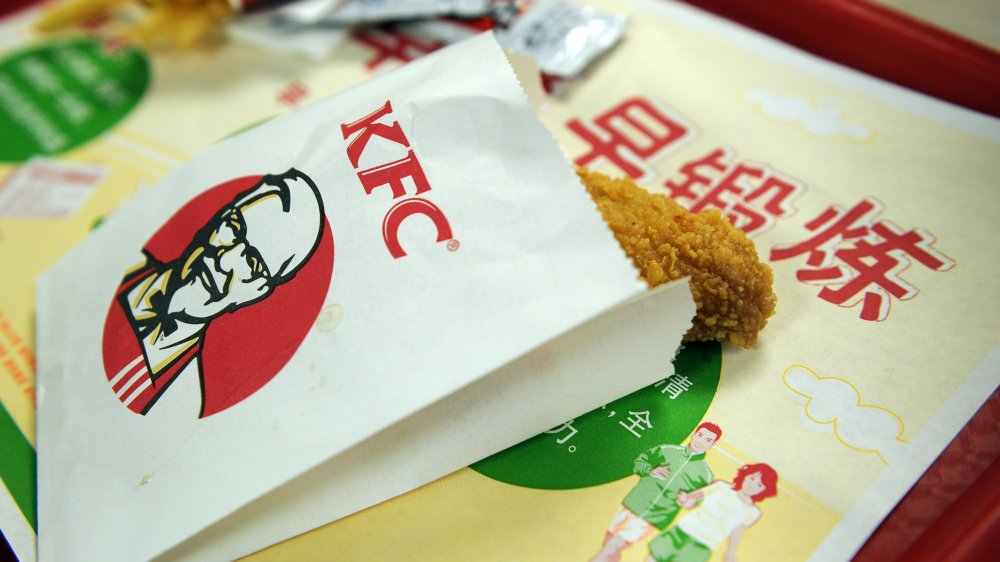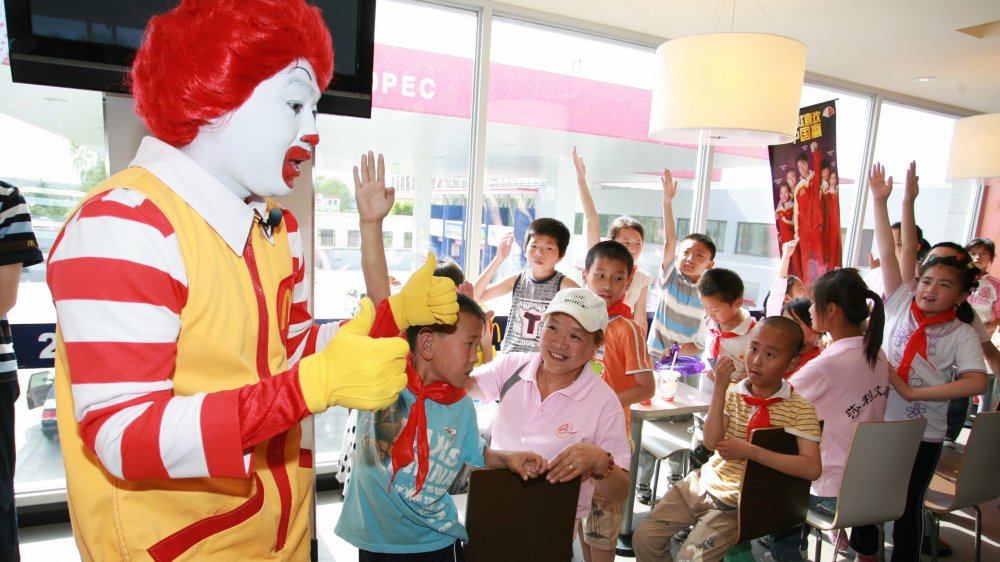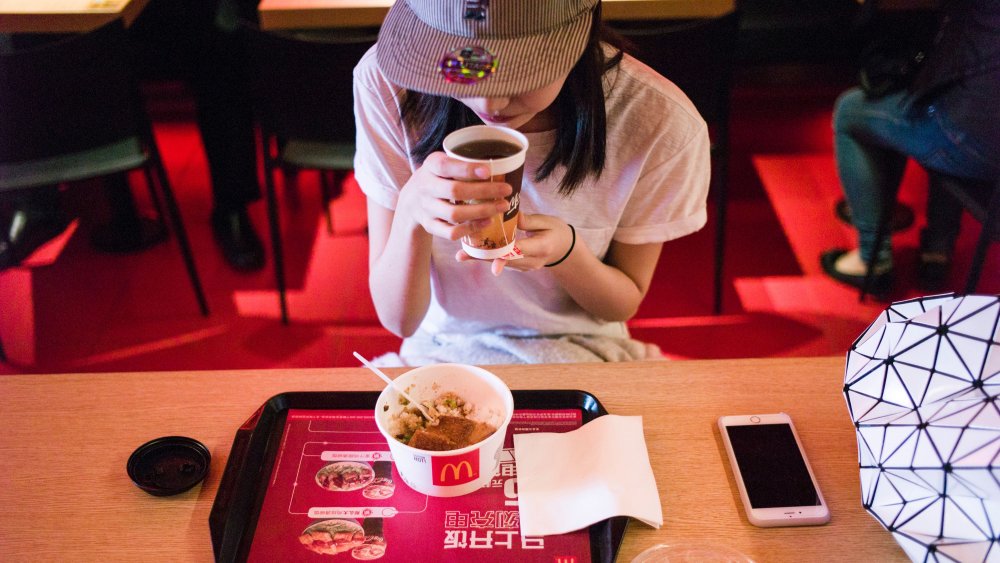The Real Reason American Fast Food Is So Popular In China
By all accounts, the six-month-long Shanghai Expo 2010 was the largest in world history. By the time it closed, it had 71 million visitors and was considered by officials like Expo Assistant Secretary General Xu Bo as "... a landmark for the process of Chinese modernization" (via The Independent). One of the key players at the event was Yum Brands, owner of KFC and Pizza Hut, who had signed up as the U.S. Pavilion's first food and restaurant sponsor (via Skyscraper City).
That Yum Brands wanted to be a visible part of Shanghai's big party in 2010 was no surprise, as KFC was a big hit in China when it landed with a splash in 1987. By August 2019, Daxue Consulting says the Colonel and his fried chicken made their marks across the country by opening 5,000 restaurants across 1,100 cities. Even though they face stiff competition from up-and-coming Chinese fast food companies, American brands like KFC, Pizza Hut, Starbucks, and McDonald's still lead the pack.
American fast food restaurants have a handle on the Chinese market
Fast food restaurants have been able to put themselves at the heart of China's dining public partly because of their ability to pick the right locations. When KFC first opened in China, they occupied a spot on the edge of Beijing's Tiananmen Square, in full view of both local and international tourist groups. (Fun fact: Eater says that first day, KFC sold over 2,200 buckets of fried chicken in 24 hours, earning $83,000.)
Since then, U.S. fast food restaurants have moved into China's 3rd- and 4th-tier cities to try and capture an even bigger market share. To keep Chinese customers interested, KFC also offers a more localized menu, so if you're traveling from the U.S. to China and are looking for a taste of home, don't expect to see the same dishes.
China's diners trust American fast food brands
But American fast food chains have something their local counterparts don't: reliability. "There's a trust arbitrage in China," Georgetown professor of strategy and economics Arthur Dong tells Eater. "The Chinese consumer doesn't trust anything. They don't trust their food, they don't trust their water, they don't trust the air they breathe. They don't trust the medicines because almost every other day there's some kind of scandal about tainted food: used cooking oil, gutter oil, and adulterated meat and vegetables that have loads of pesticides on them."
He also notes that consistency is vital when it comes to the integrity of the food. "[Chinese consumers] feel that American companies won't cheat in the way that Chinese companies will cheat," Dong says. "You have open kitchens and fairly decently maintained dining rooms. There's a systematic approach to food service that American companies are very stringent on. They will hold their store managers accountable. They also have ghost shoppers to check on the stores."


